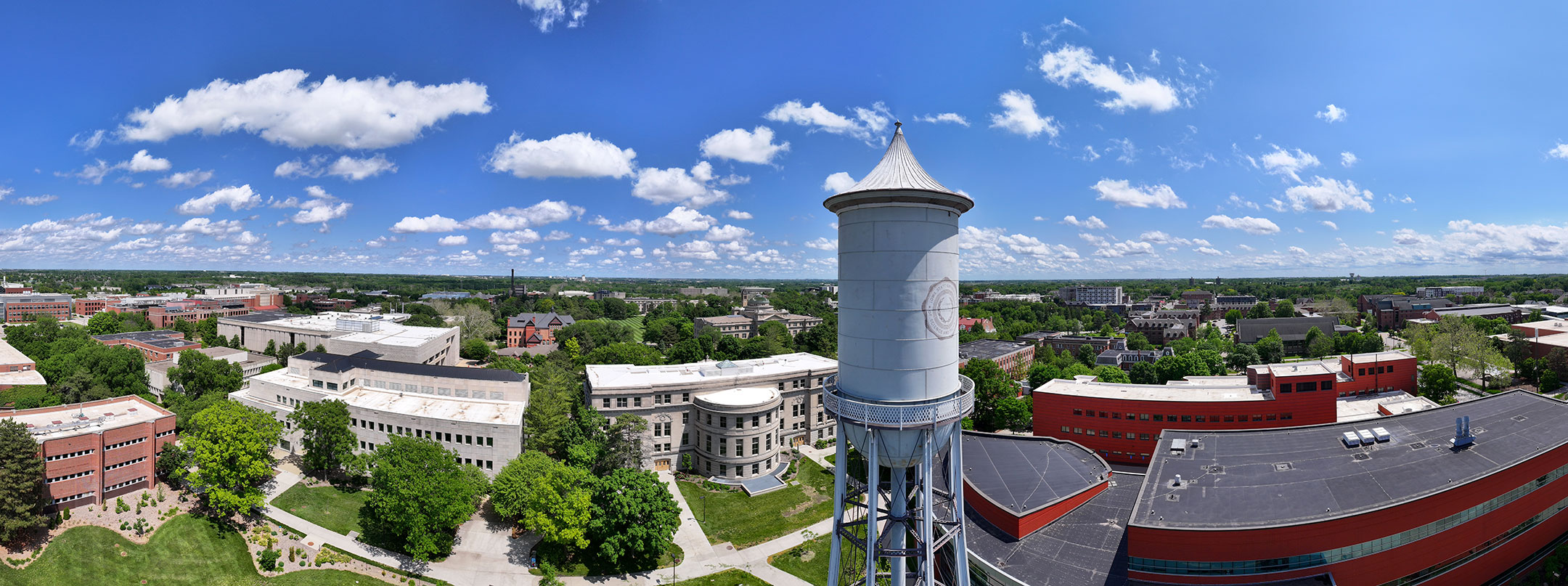Biological Systems Engineering
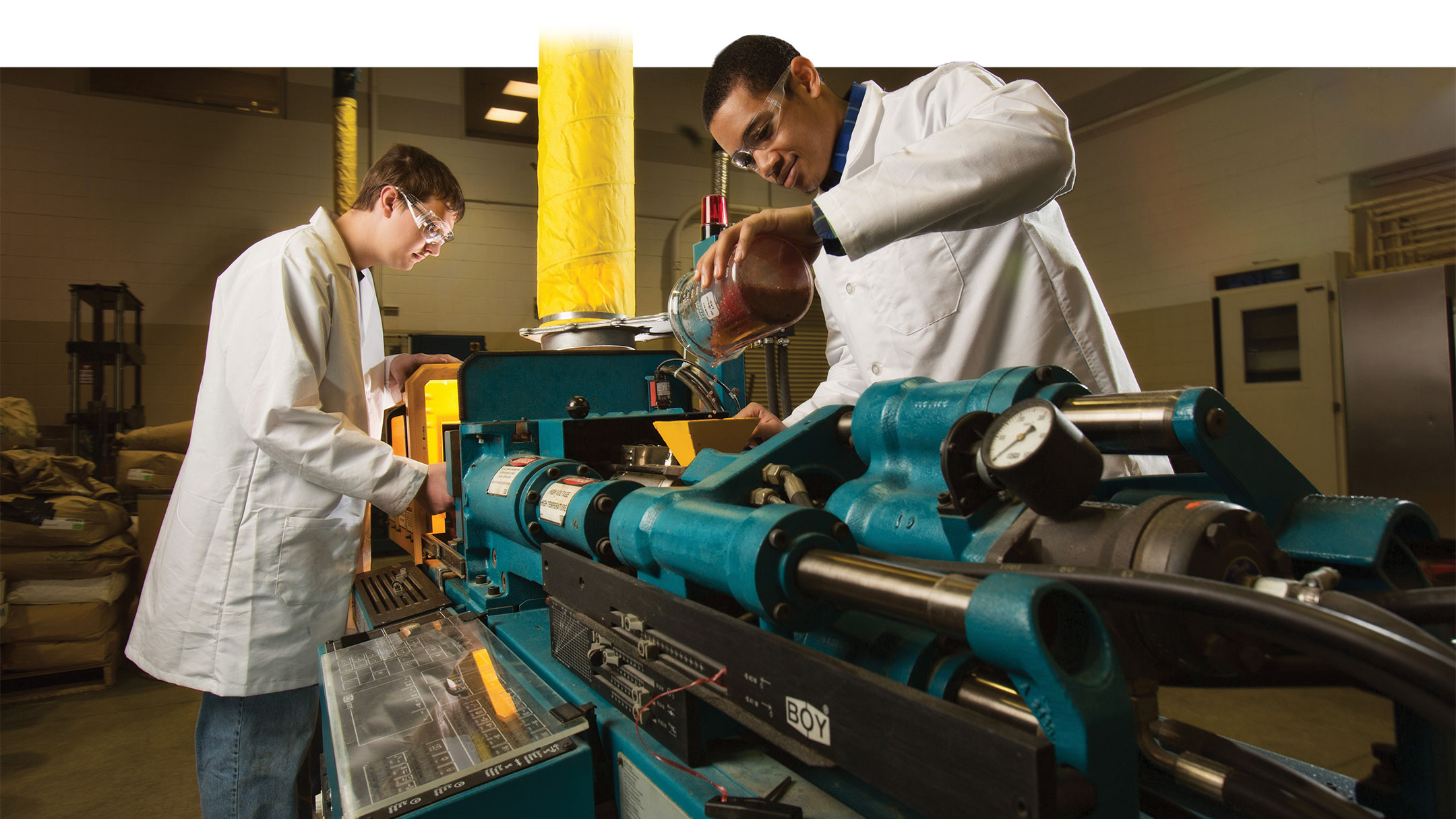
A Biological Systems Engineer
in the Making
The biological systems engineering program is grounded in theory and practice – generating new ways of thinking for everyday life. Our graduates are leaders in sustainability, renewable energy, food and biomaterials, bioenergy, ecological engineering, water conservation, and bioprocessing.
-
100%
employed or continuing education within six months of graduation
-
$67,500
average starting annual salary
-
$21/hr
average earnings for internships and co-ops
A competitive advantage
Iowa State Engineers get hired. And we’re here to help connect you to internships and full-time jobs.
- 1,400 employers recruit engineering students each year
- One-on-one career advising
- Networking opportunities
Community and Support
College is more than just academics. Join the community and you’ll find friends, new perspectives and experiences—and support.
- Learning communites
- Clubs and student organizations
- Support resources and groups
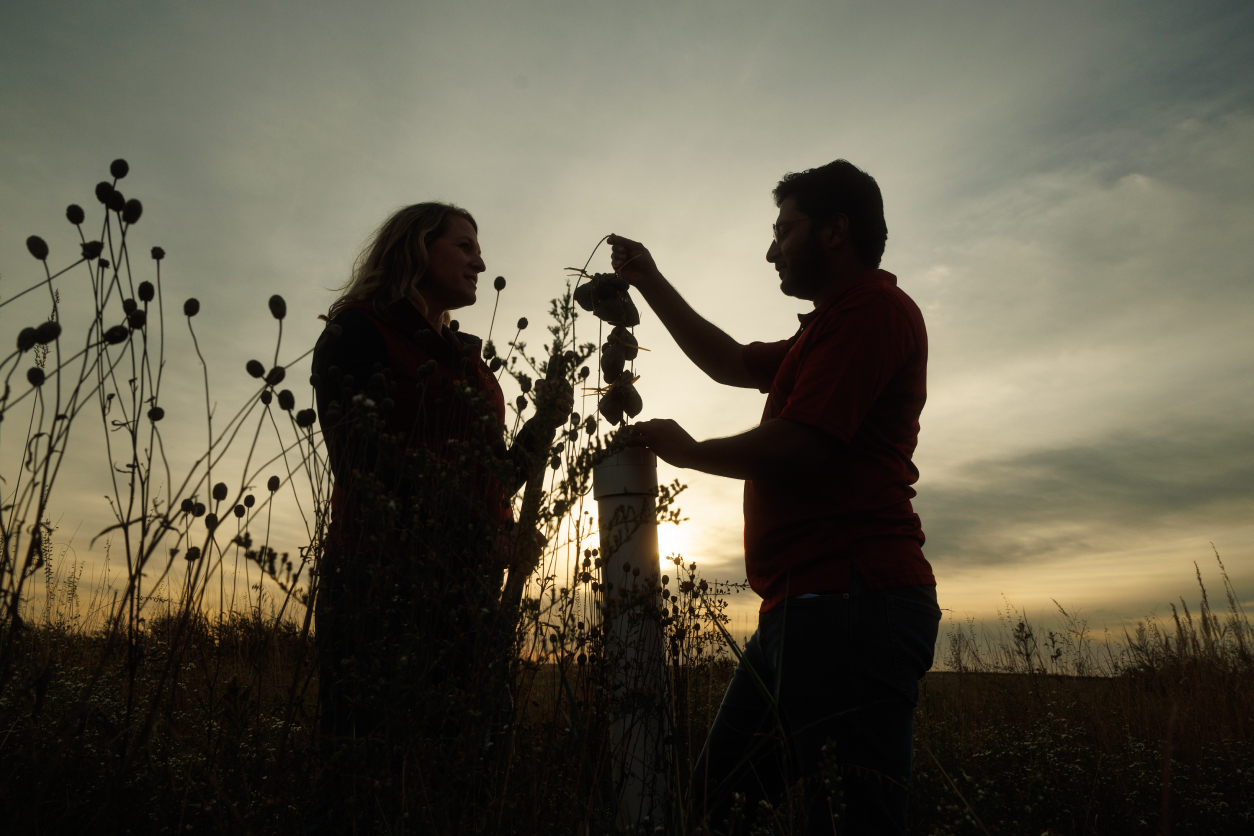
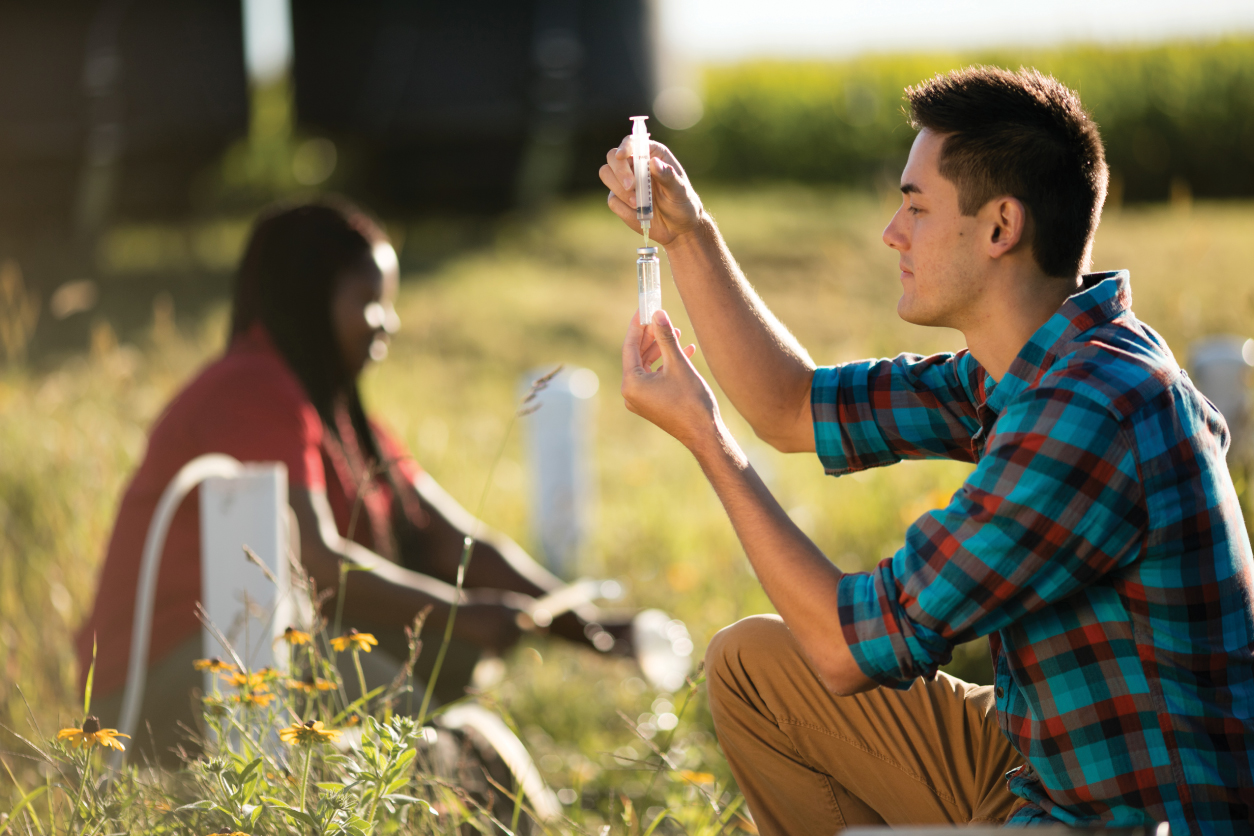
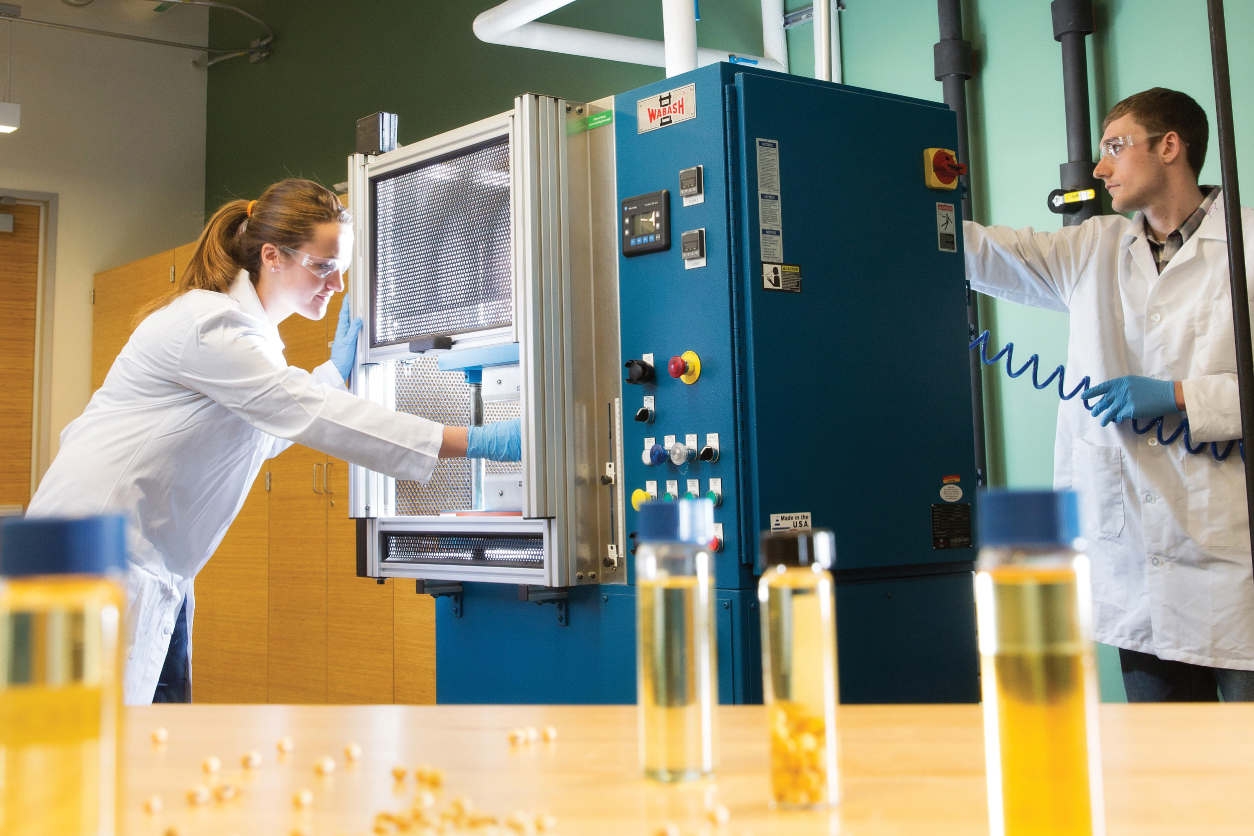
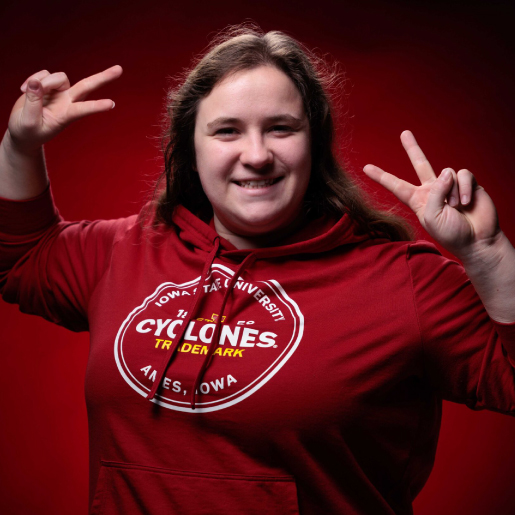
Iowa State set me apart as an engineer who can work collaboratively, think differently, drive innovation, and many more skills that cannot be taught in a textbook.
Bethany Groos, biological systems engineering
What can I study?
Your course work will combine engineering with chemistry and biology to prepare you for careers in food, feed, fiber and environmental areas. The biological systems engineering degree offers exciting opportunities to integrate life sciences with engineering. Specific areas of academic emphasis include:
Ecological engineering—Four-year course plan
Apply biology and engineering principles to improve and protect soil, water and air quality.
Food and bioprocess engineering—Four-year course plan
Use science and engineering to meet the needs of modern food and bioprocessing industries.
Open option—Four-year course plan
Tailor your technical electives to meet broader career goals (globalization, political science, management, prepare for professional degree, etc.)
For the 2024-25 academic year, our biological systems engineering students preferred these minors:
Biological Systems Engineering at Iowa State
Do you want to make a big difference in the everyday lives of people locally and globally— helping to use bioresources for safe food, a clean environment and energy? The engineers who do this work are interested in the application of biology and engineering meeting core human needs.
-
Personal attention
from facultyPersonal attention
from facultyOur department is small enough for you to have personal attention from faculty, but large enough to choose a variety of educational opportunities. The student-to-faculty ratio is 28:1. Average class size is 15 to 50 students, and the average lab size is about 16 students working in teams of 2 to 4.
-
Learning communities
provide support and networkingLearning communities
provide support and networkingWhen students support each other, good things happen. We have created a strong social and academic environment for new students with our living/learning community. Join a learning community and have a common schedule of classes, peer mentors, career exploration opportunities, and the option of living on a floor with other students in your major.
-
Labs for hands-on
learning opportunitiesLabs for hands-on
learning opportunitiesIn class, you will use state-of-the-art computers and lab equipment. In fact, several companies donate lab equipment to help you learn. Some of our unique labs include:
- Biological Systems Engineering Lab
- Grain Handling and Processing Lab
- Water Quality Lab
Creating solutions,
sustaining the future
Biological systems engineers help safeguard our air, water and food supply by developing engineering solutions to meet the existing and emerging needs of bio-based production systems and industries globally.
Each year, Iowa State awards millions of dollars in scholarships to students. Learn more about scholarship opportunities for:
More information about cost of attendance and other types of aid is available from the Office of Student Financial Aid.
Orientation is for students who have accepted admission to Iowa State and plan to enroll in an upcoming term. During orientation you will be provided the opportunity to:
- meet with an academic advisor
- register for classes
- obtain your ISU card
- become familiar with the campus
- increase knowledge of important policies and procedures
The basic program for engineering majors is a set of courses common to all engineering curricula. Students normally enroll in the majority of the basic program courses during their first year.
Learn more about new student orientation and the first-year engineering program.
- 8,225 engineering students (fall 2024), the largest college on the Iowa State campus, with the support of 500+ engineering faculty and staff dedicated to teaching, research and student achievement.
- 75% of Iowa State engineering students graduate with engineering work experience. Internships and co-ops, learning communities, study abroad, 90+ engineering organizations give the hands-on experience to help shape student success.
- Our bachelor of science degree programs are accredited by the Engineering Accreditation Commission of ABET.
- More college facts and highlights
What courses should I be taking in high school to prepare for a engineering degree?
Many high school students have access to college-level courses in high school. We know it’s in your nature to maximize your opportunities.
Learn more about what’s required, what’s recommended and what will transfer
What kind of a laptop computer will I need?
Iowa State University students are required to own or obtain a laptop computer appropriate to your discipline and program of study.
College of Engineering laptop computer recommendations
Can I study abroad?
Engineering International Programs can help you find study or work abroad experiences suited to your interests and goals. Expert staff can assist with course enrollment and transfers to keep you on track for graduation.
Learn more about Engineering International Programs
Are there ways to get practical work experience while at Iowa State?
Participation in a co-op or internship is a great way to gain real-world work experience. Students are employed by industry and government organizations in positions related to their major field of study. Unlike a typical part-time or summer job, an engineering co-op or internship must Involve the Practice of Engineering, and students must be paid. Co-ops and internships are not required by the college, but they are highly encouraged.
Learn more about Internships and Co-ops
There are also opportunities for students to work alongside professors doing research in areas related to their major field of study.
Learn more about Undergraduate Research Opportunities
Engineering Recruitment and Student Services
1300 Marston Hall, 533 Morrill Road, Ames, IA 50011
Phone: (515) 294-7186
Office Hours: Monday-Friday, 8 a.m.-5 p.m.
